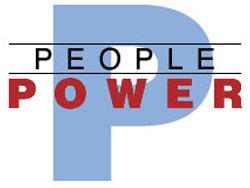People Power - August/September 2008
By Scott Humphrey
I’ve never claimed to be the smartest person in the room, so let me acknowledge to you that there are words whose definitions are so vast they tend to intimidate me. One of those words is “sustainability.” If you are like me, you are hearing this word more and more and possibly understanding it less and less. It often gets grouped in with words like environmentalism, eco-friendly, the green movement, and even global warming.
Maybe one reason this topic is so difficult is that I have never considered myself a “tree hugger.” Oh don’t get me wrong; I’ve been attentive to the environment from an early age. Much of that focus came from the many years I spent as a Boy Scout. But I have always seen the environment as a gift that we have been given to utilize, enjoy, and maintain for future generations; not one that was in any way meant to limit the potential of mankind.
In this column I would like to focus on three fallacies related to sustainability:
1. Sustainability is about limiting the utilization of natural resources
As you might have gleaned from my last column, I am all for tapping into the resources available today, especially in the U.S., to offset the rising cost of energy. Many people see that in contrast with being environmentally friendly. I don’t. I see much of what is happening as it relates to our current energy situation as a political power play. With today’s technology, the feared potential for many of the mishaps of the past, mishaps that are often brought to the forefront to discourage our utilization of the natural resources with which we have been blessed, has been greatly diminished and in many cases eliminated. But I digress.
To get a better understanding of why this belief is a fallacy and to better understand what sustainability truly is, let’s take a look at its definition. Webster defines it as: “… a method of harvesting or using a resource so that the resource is not depleted or permanently damaged...” In this case, it might be helpful to break the word down to a simpler form. Sustain is defined as: “to continue without lessening, to nourish, to allow to flourish.” Ability is quite simple: “to be able to.” Thus in it’s simplest form, sustainability is: to enable the continued existence and growth of something.
Thus we can see that in its truest form, sustainability is not about limiting or eliminating the utilization of our natural resources, but utilizing them in such a way that it allows those same resources to flourish.
2. Sustainability is a corporate issue
Much of the confusion surrounding sustainability comes from the fact that we have allowed it to become a corporate issue. Very few companies and organizations have grasped the fact that true sustainability can only be accomplished through individuals who, in turn, impact the practices of corporate America. You may be saying, “Now Scott, you are just splitting hairs. Of course it is the people within a company that make the decisions on how that company will change its practices to have a more positive impact on our environment.” If that is what you think I am saying, you are not hearing me. My point is this—to change a company and its practices you must change the personal practices of the individuals in that company, not at work where they may be rewarded or reprimanded for falling or not falling in line with the corporate mandate, but at home…where they live. Sustainability must become personal.
Possibly the most visible example today is Wal-Mart’s Personal Sustainability Project. No matter how you feel about Wal-Mart, it is leading the way on this initiative. Judah Schiller of the green marketing firm Saatchi & Saatchi, which was chosen to help corral 1.3 million Wal-Mart associates into finding new ways for the retail giant to go green, says, “to get the kind of innovative thinking any company—large or small—is looking for, you have to distribute the problem throughout the organization and let people engage with sustainability in their own way, through their own unique perspective. Any company that is serious about sustainability should consider the bottom-up perspective.”
Schiller further emphasizes this point by saying, “Corporations are a phantom legal entity, but it’s the people who are the life and blood of an organization and they are the ones who ultimately change the way operations are run, materials are sourced, and products are manufactured.”
3. Sustainability is an environmental issue
Very simply, sustainability is not an environmental issue; it is a life issue.
In relation to Wal-Mart’s Personal Sustainability Project, Schiller again states, “We’ve found that top-down approaches don’t tend to work for sustainability…we are moving toward a broader definition of sustainability that encompasses environment, economics, and social and cultural issues…”
In workshops being held all across the nation, Wal-Mart is teaching its employees the benefits of carpooling to work with three colleagues (saving some $400 per year on gas), quitting cigarette smoking (some $1,500 per year) and turning off a television ($40 a year plus more time to spend with family).
I am proud to be part of an industry that in so many ways is leading the sustainability effort. Leading suppliers in this industry focus on community and cultural issues as well as those that have a direct impact on the environment. Many other industry leaders have shown that they understand that sustainability is not something to fear, it is something to embrace. It is about proper utilization of all of our resources: environmental, economic, social, and cultural. It is not a corporate initiative, but in its truest form a personal one.
I enjoy hearing from you and appreciate any suggestions or comments you have to offer.
Copyright 2008 Floor Focus
